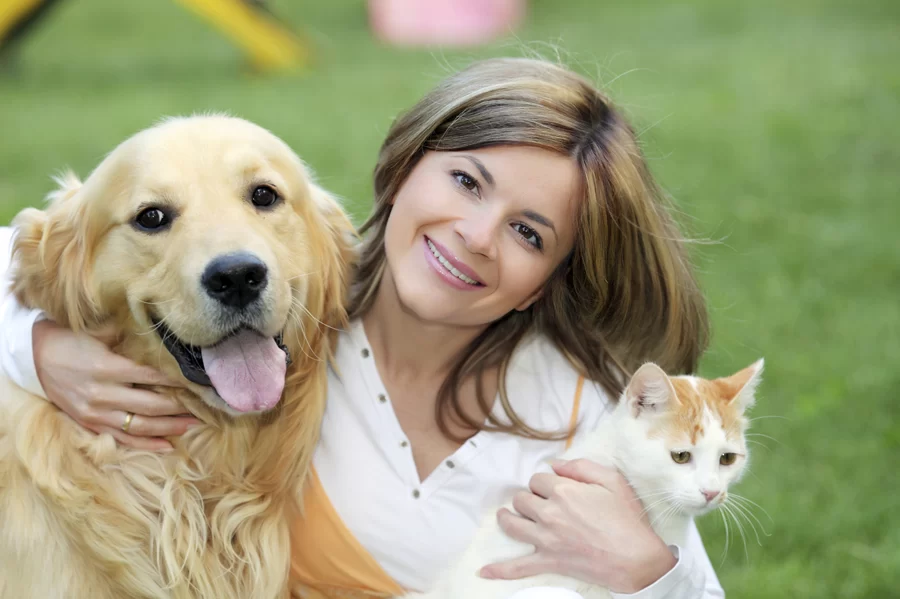Best Pet Care Tips for First-Time Pet Owners: A Comprehensive Guide
- Getting Ready for Your New Pet
- Understanding Your Pet’s Needs
- Feeding Your Pet Properly
- Keeping Your Pet Healthy
- Training and Socializing Your Pet
- Creating a Pet-Friendly Home
- When to Visit the Vet
- Why Choose Hidden Brook Veterinary for Your Pet’s Care
Getting Ready for Your New Pet
Before bringing a pet into your home, it's essential to prepare both emotionally and practically. Whether you're adopting a dog or a cat, there are several things you need to consider. This includes choosing the right pet for your lifestyle, pet-proofing your home, and gathering the necessary supplies.
Start by researching the breed or species you're bringing into your home. Each pet has different requirements in terms of food, space, and exercise. Make sure you understand these needs to ensure a smooth transition for both you and your new pet.
Understanding Your Pet’s Needs
Understanding your pet’s physical and emotional needs is key to providing the best care. Different pets have different personalities and energy levels, so it’s important to know what to expect. Here are some basics to keep in mind:
1. Emotional Needs
Pets need affection and companionship. For many pets, especially dogs, being left alone for long periods can lead to separation anxiety. Try to spend quality time with your pet every day and ensure they have plenty of toys and activities to keep them entertained.
2. Physical Needs
Physical exercise is important for your pet's overall health. Dogs need daily walks, while cats may enjoy interactive play sessions. Pay attention to their exercise requirements and make time for them to stretch, run, or explore.
Feeding Your Pet Properly
Nutrition plays a crucial role in the well-being of your pet. A balanced diet can prevent numerous health problems and ensure your pet lives a long, healthy life.
1. Choosing the Right Food
Each pet has different dietary needs based on their age, size, and breed. It’s important to select the right food, whether it’s dry, wet, or raw. Always consult with your veterinarian to determine the best food for your pet’s specific needs.
2. Feeding Schedule
Set a consistent feeding schedule to help your pet maintain a healthy weight. For puppies and kittens, multiple small meals a day are necessary, while adult pets typically do well with one or two meals. Always provide fresh water alongside their meals.
Keeping Your Pet Healthy
Keeping your pet healthy is about more than just feeding them well. Regular exercise, grooming, and preventive care all play a vital role in their health.
1. Exercise and Mental Stimulation
Exercise is not only good for your pet's body but also for their mind. Regular playtime, walks, or even learning new tricks can keep your pet mentally stimulated and prevent boredom, which can lead to behavioral problems.
2. Grooming and Hygiene
Regular grooming helps keep your pet’s coat and skin healthy. Bathing, brushing, and nail trimming are essential parts of keeping your pet comfortable. Some pets may also need regular ear cleaning and dental care, so it’s best to stay on top of these tasks.
3. Preventive Healthcare
Routine vet checkups and vaccinations are crucial to maintaining your pet’s health. Make sure to schedule regular appointments with your veterinarian to monitor your pet’s health and stay up-to-date on their vaccinations.
Creating a Pet-Friendly Home
Before bringing your pet home, ensure that your living space is safe and pet-friendly. Remove any hazards, such as toxic plants or items they could chew on, and set up a comfortable area where your pet can rest and relax.
1. Pet-Proofing
Just like you baby-proof your home for a child, pet-proofing is essential. Secure dangerous chemicals and foods that may be harmful to pets, and make sure your pet has a safe area to play and sleep.
2. Comfort and Safety
Provide your pet with a cozy bed, safe toys, and a space of their own. Cats may enjoy a high perch, while dogs may appreciate a quiet corner to retreat to. Ensuring your pet’s comfort is key to their happiness.
When to Visit the Vet
Routine vet visits are an essential part of keeping your pet healthy. However, there are certain signs that indicate a trip to the vet is necessary:
1. Behavioral Changes
If your pet shows signs of lethargy, anxiety, or aggression, it could be an indication of a health issue. Always consult your vet if you notice unusual behavior.
2. Physical Symptoms
Excessive scratching, vomiting, diarrhea, or changes in eating habits should be addressed by a vet. These could be signs of allergies, infections, or other medical conditions.
Are you ready to start your journey as a pet owner? Take the first step by visiting Hidden Brook Veterinary for personalized advice and expert care for your pet!












